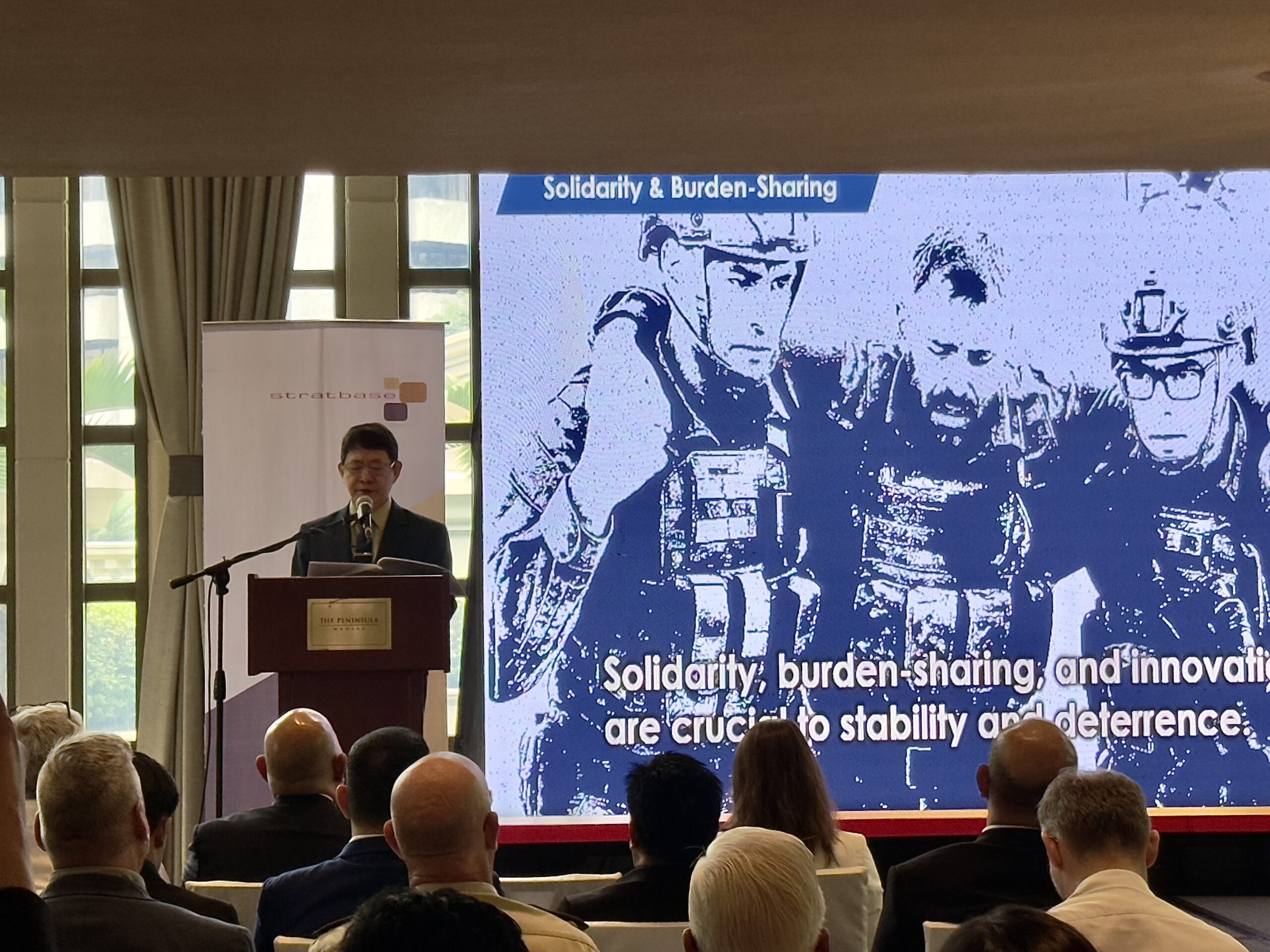Año: China’s Scarborough plan part of escalating ‘gray zone’ threats

Speaking at a forum on asymmetric threats hosted by the Stratbase Institute and the European Council on Foreign Relations, National Security Adviser Eduardo Año said Beijing’s plan disregards international law in favor of “self-serving and coercive domestic laws.” Photo by Gabryelle Dumalag.
MANILA, Philippines — National Security Adviser Eduardo Año on Thursday warned that China’s plan to turn Scarborough Shoal into a “national nature reserve” is part of a wider campaign of coercive actions and “gray zone” tactics that threaten regional security and the rules-based international order.
Speaking at a forum on asymmetric threats hosted by the Stratbase Institute and the European Council on Foreign Relations, Año said Beijing’s plan disregards international law in favor of “self-serving and coercive domestic laws.”
“Shared stakes and closer coordination in freedom of navigation and stability, especially across the troubled and turbulent waters of the Taiwan Strait, the South China Sea, the West Philippine Sea and East China Sea, should be our main armors in conflict prevention and diplomacy,” Año said.
He said the Philippines is facing a combination of security risks, from harassment of vessels in its exclusive economic zone to cyberattacks and undersea cable sabotage, that could paralyze communications and undermine public trust.
“No single country can counter and combat them alone,” Año said. “Asymmetric threats demand symmetric unity and systematic actions.”
READ: Ano-carpio-warn-of-chinas-next-move-after-nature-reserve-ploy/
Additionally, Rear Adm. Guillaume Pinget, commander of the French Armed Forces in the Pacific, said these tactics have become a “strategic tool” of statecraft, adding that technological competition is rapidly opening new fronts for conflict.
“AI, drone, space, information, cyber, and electronic spectrum add new areas of confrontation, while we still have to keep our confrontational core,” Pinget said. “It is a threat to our economic, democratic, political model, individual freedom, freedom of our nations and people.”
European Council on Foreign Relations Distinguished Visiting Fellow James Crabtree likewise warned that gray zone activity is increasingly visible across both Europe and Asia.
“Those of us who live in Europe have been watching with rising alarm at the events on our eastern frontier with Russian drones in Poland, Russian helicopters in Estonia… Here in the Philippines, we saw only yesterday another example of the gray zone activity that your military, your Navy and your Coast Guard have to cope with on a regular basis,” he said.
Stratbase President Dindo Manhit said the forum underscored the need for Europe and the Indo-Pacific to work together as their security interests converge.
READ: Cyberattacks-disinformation-part-of-shadow-war-analyst-says
“Changing times have narrowed the gaps and have intertwined our present and our future. Security and prosperity are our common goals,” he said.
The day-long event featured four panels tackling lawfare, the vulnerability of undersea cables, the risks posed by artificial intelligence and drones, and the ripple effects of shifting US security policy.
Experts stressed that coordinated action, burden-sharing, and innovation are needed to protect supply chains, elections and democratic institutions from coercion and disinformation campaigns. /mr
For comprehensive coverage, in-depth analysis, visit our special page for West Philippine Sea updates. Stay informed with articles, videos, and expert opinions.


















